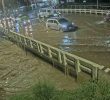CAGAYAN DE ORO CITY, Philippines – Environmental groups reiterated on their stand urging the Philippine government to join other member-states in the Southeast Asian region in ratifying an international statute that will ban the transport of garbage from one country to another.
In a statement on February 18, the Philippine-based EcoWaste Coalition in the Philippines and the Consumers’ Association of Penang in Malaysia urged the Association of Southeast Asian Nations (ASEAN) member-nations to declare the entire region as “no dumping ground” for hazardous wastes and other wastes such as household and plastic garbage.
Aileen Lucero, Ecowaste Coalition national coordinator, said that protecting the region from the environmental and health impacts of waste trade all the ASEAN member-states should immediately ratify the Basel Convention Ban Amendment and fix regulatory loopholes if any that ‘’legalize’’ the entry of hazardous wastes and other wastes disguised as recyclable scraps.
“Regionally, we urge the ASEAN to adopt a declaration, or better still an agreement, proclaiming the region as no dumping ground for foreign wastes, Lucero said.
The award conferred to environmental enforcers said Mageswari Sangaralingam, Consumers’ Association of Penang researcher, “has once again turned the spotlight on the illegal traffic of waste in Asia and the need for greater collaboration and vigilance, nationally and regionally, to put an end to such an environmental crime.”
For her part, Chinkie Peliño-Golle, International Pollutants Elimination Network – Southeast and East Asia regional coordinator, said “now is the time for the ASEAN to flex its muscle as a regional block to denounce global waste dumping and affirm its unity to safeguard the region’s people and the environment from the drawbacks and hazards of waste trade.”
CDO Customs office head gets award
On February 17 evening, the United Nations Environment Program (UNEP) awarded John Simon, the district collector of the Bureau of Customs-10 (BOC-10), and seven other leaders from Asia for contributing to the global campaign to address crimes against the environment held online at the UN Asia and the Pacific headquarters in Bangkok, Thailand.
Simon received the Asia Environmental Enforcement Awards for returning 7,408 metric tons of illegal waste shipments back to South Korea in 2019 and 2020 after these were apprehended by the Customs bureau here.
Working in the BOC for 30 years, Simon said he is the first Customs official to receive such an award for his environmental campaign.
The awards are given each year by the United Nations (UN), in partnership with the International Criminal Police Organization, World Customs Organization, and the Convention on International Trade in Endangered Species of Wild Fauna and Flora, for achievement in “combating trans-boundary environmental crime.”
The recognition is given to Simon and seven others by the UN, Simon said, should be a “test case” for the ratification of the Basel Convention Ban Amendment.
He said the Philippines, which is a contracting party to the convention, “is supposed to implement to the letter the spirit of the convention, and the spirit of the convention is to not allow any garbage from any country to any country.”
Most developed countries violate agreement
Unfortunately, Simon said, most of the developed countries, which are also signatories to the convention, “are the ones guilty” in violating the Basel agreement.
“Of course, these are not initiated by their governments, but by private companies,” he said, adding that governments “have to be vigilant.”
“They are not supposed to encourage them, they are not supposed to allow them,” he added, referring to waste traffickers from rich countries.
“Transboundary environmental crime threatens both planet and people,” Dechen Tsering, UNEP regional director and representative for Asia and the Pacific, said in another statement.
“With COVID-19, the importance of preventing the illegal trade in wildlife and regulating plastic waste is becoming more and more apparent,” she said.
Through the work of the UN and Interpol, the official said, “we have improved the governance of transboundary environmental crime, but this means nothing without enforcement. That’s why they work of this year’s winners is vital. They are on the frontlines of environmental protection.”
According to UNEP, environmental crime is the fourth largest illegal activity after drug smuggling, counterfeiting, and human trafficking. The value of crimes such as illegal trade in wildlife and forest products, illegal waste dumping, smuggling of ozone-depleting substances, and illegal mining is estimated at up to $258 billion per year.(davaotoday.com)










